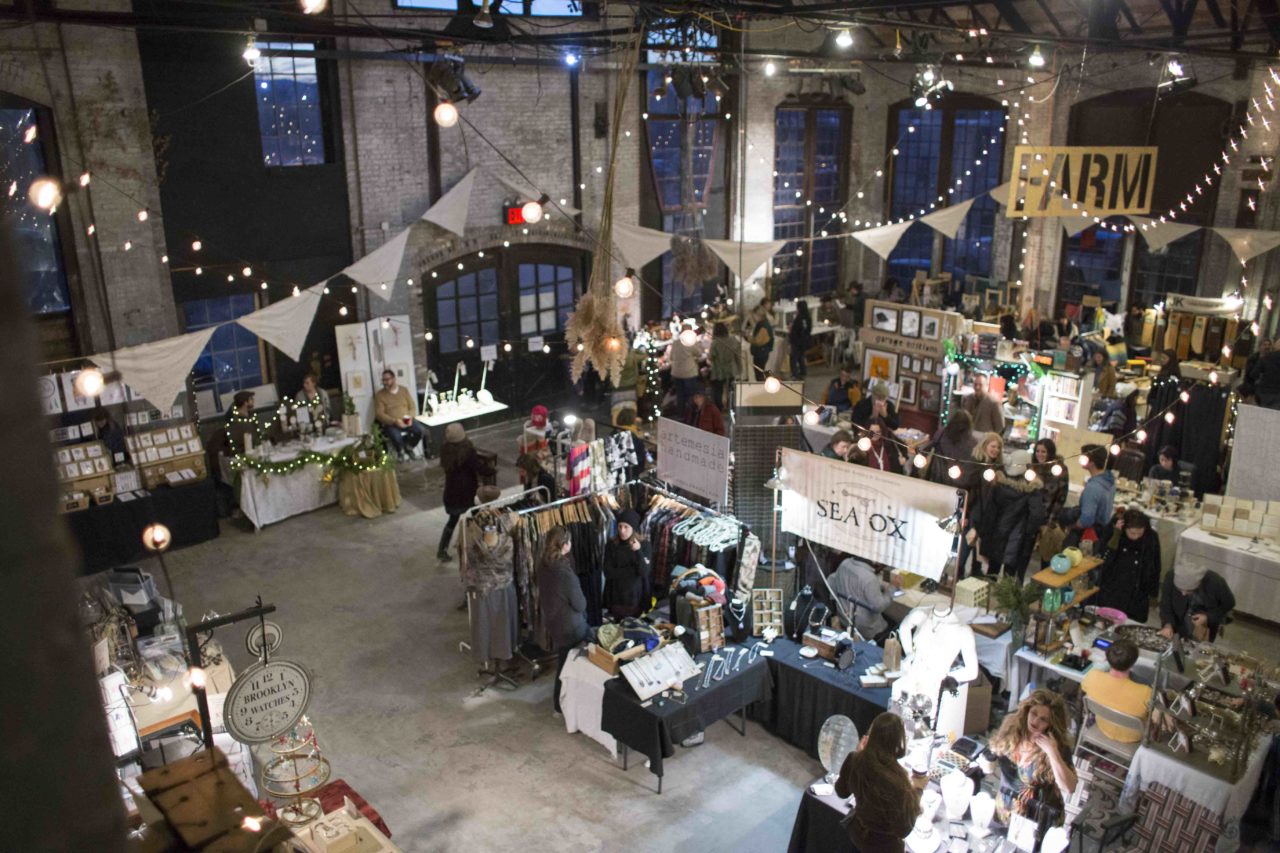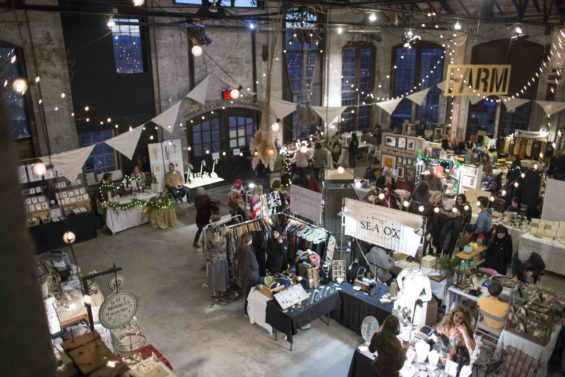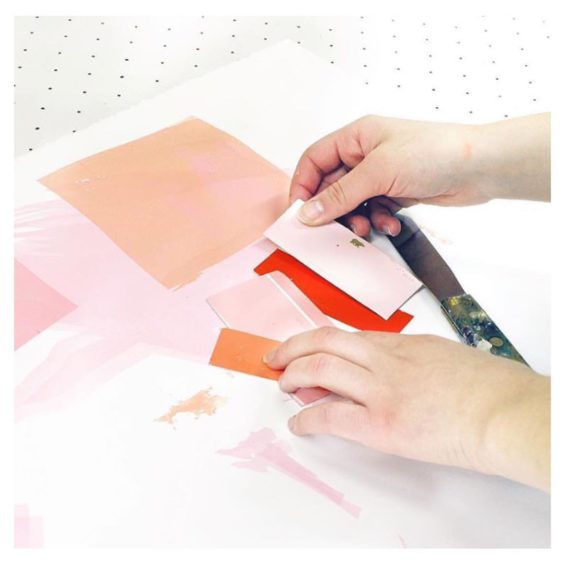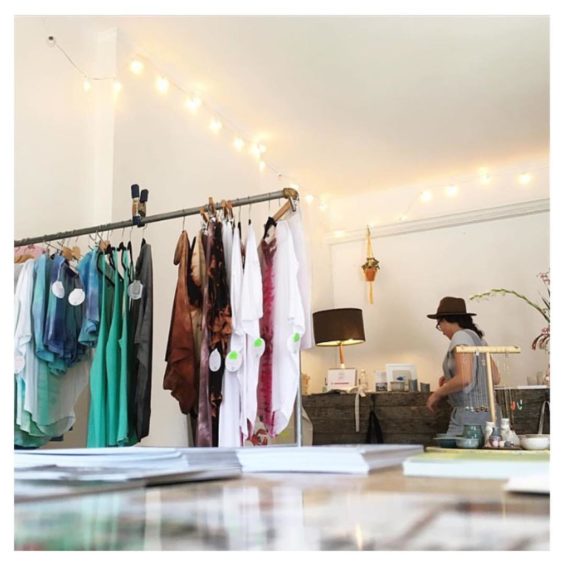5 Questions with Stella Yoon of Hudson River Exchange


Hudson River Exchange winter 2015 market. (Photo by Margrit Wenzel.)
Happy accidents are the stock in trade for Stella Yoon, part of the creative team (along with Kate Moore and Kate Sterlin) who founded the Hudson River Exchange in 2013. Yoon and Moore now run the organization, which draws on the long history of creative commerce along the Hudson River.
HRE is best known for producing curated marketplaces large and small—from weekend-long summer fairs and pop-up shops featuring top-quality handmade goods—but has also developed rich educational programming to support the makers and collectors in and around the city of Hudson and the Berkshires. I talked to Stella about her unique perspective on running—and growing—a small, creative business.
ROBIN CATALANO: What inspired the leap from creative consultant and stylist to founder of a handmade-goods collaborative?
STELLA YOON: It was an organic one and not entirely intentional. When I first moved to Hudson, I was freelancing, so my schedule was pretty flexible. I was getting to know the town and working from home so I enjoyed helping out on creative projects if anyone needed a hand. I was invited to help organize a handmade market event and I joined because I really enjoy working collaboratively. It was a great opportunity to meet a special group of talented ladies, and our collaboration brought together the first Hudson River Exchange Summer Market.
Since then, what Hudson River Exchange has evolved to be really feels like a culmination of my interests and experiences. After art school, I thought I wanted to go into arts administration and curation. But I changed course and began pursuing creative work. It began at Anthropologie, on the visual display team in New York City. Visual merchandising and display merged my interest of curation with a love for objects. My approach was to create a narrative experience, which is basically what I get to do through our market events and pop-ups.
RC: Why do handmade goods matter?
SY: Handmade goods are a celebration of human ability. There are moments, usually when I am struck by how beautifully made something is, that remind me that there was a time in the not-so-distant past that people had to make something if they wanted it, whether it was clothes or a piece of furniture. Those skills and that kind of wisdom are at the core of the creative dialogue that we continue to evolve, yet it’s getting harder and harder to find those that are still working in these traditions.

The makers of Wolf Jaw Press, a Hudson River Exchange vendor, at work.
RC: What makes the HRE different from other creative collaboratives?
SY: Hudson River Exchange grew out of what seemed like a need in our community—space for makers and collectors to sell in a marketplace that was more focused and for those trying to grow their business and evolve from hobbyist to entrepreneur. We knew that we were providing a service by creating market events, but realized that this emerging group of small businesses had unique needs. So we try to design our programming around the feedback we hear from the people we work with, and offer services and platforms that could be useful to the creative entrepreneur living in the Hudson River Valley region.
RC: Why did you start the educational component of HRE?
SY: I kind of loved school! I can’t say I’m very good at retaining information or actually being a good student, but I like learning and think there’s always something you don’t know. Creative people tend to be curious ones, so we figured if we liked school and learning, the community we are surrounded by probably does, too.
There are somethings that seem so mysterious or sometimes after hours of Googling, you just wish you could ask a question directly to a person or just have someone talk to you. Being out on your own as a business person, it’s hard to find time to learn all the things you need to know, so we wanted to provide time and space for that through Hudson River Exchange.
RC: Do you have any personal or business mantras?
SY: Creativity loves company! It was a hashtag Kate used once and I was like, YES, that!
When I started freelancing, people established in the industry were really generous with sharing knowledge and connecting me with people. That’s something that’s important to how I approach Hudson River Exchange.

Hudson River Exchange’s pop-up shop on Warren Street in Hudson. Makers and displays are switched out monthly.
RC: What motivates you to keep going even when things aren’t quite happening as planned?
SY: I guess I assume that not everything is going to go perfectly as planned. I’m a fan of happy accidents, so I try to be open. But when there is an issue, I do my best to resolve it. I’m human, so I guess if I can’t solve something completely, I let myself be disappointed or upset, but I try to learn from it and know that it’s something I can do better for next time.
Working on annual events, I’ve learned to be more patient because it’s such a long game. And if it isn’t something we can’t do for this year, I remember that we just need to make sure we do it for next year. That helps keep things level.